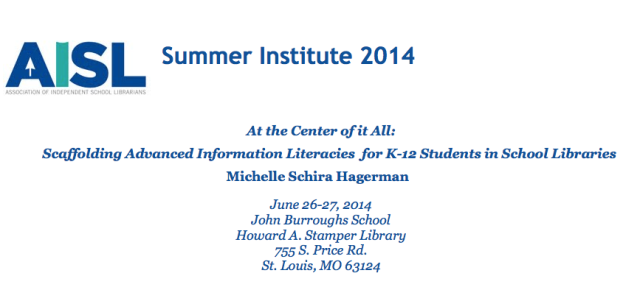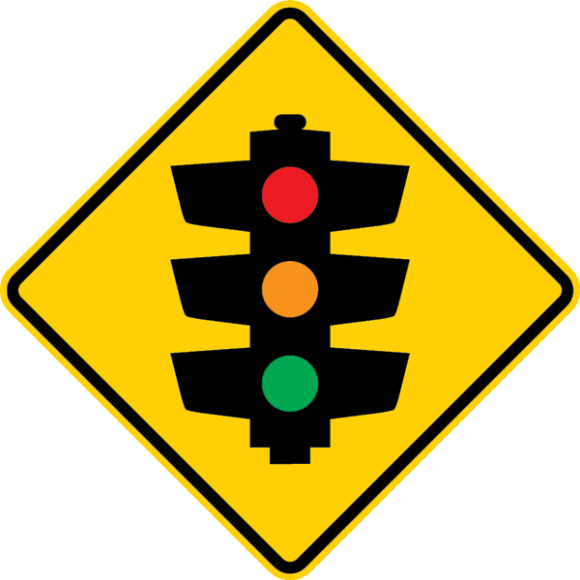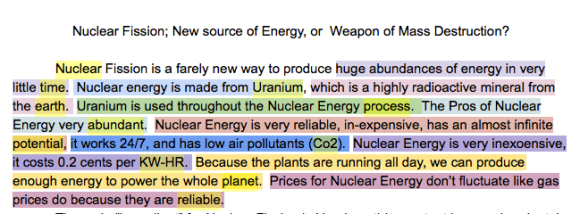Most importantly, I hope the session prompts students to generate their questions about digital literacies, and gets them thinking critically about how to support digital literacies learning through their own teaching practices.
Here is the link to the presentation: http://bit.ly/onlineinquiry
]]>I’ve included a few photos that I took of the garden while I was contemplating the connections between the work I do as a teacher and scholar of online reading, and the ecological systems that enable flowers to bloom. Complex systems, ecology, interactions — how can these images help us to consider online reading instruction that allows complex learned behaviours to emerge?
]]>

Hey! Look at that! Right there in between Gunther (2011) and Hanoch, Wood, Barnes, Liu & Rice (2011) — that’s my dissertation! I’ve been cited for the first time (that I know of)! And to make it even better, I’m honoured that I was first cited by my colleague, Mike DeSchryver of Central Michigan University, in his Teachers College Record article — just published in December, 2014 (full citation below). Thank you Mike!
Reference
DeSchryver, M. (2014). Higher order thinking in an online world: Toward a theory of web-mediated knowledge synthesis. Teachers College Record, 116 (120305), 1-44.
]]>I’ll be sharing ideas that I’ve been working to refine over the past year. I’m even sharing a graph from my dissertation!
 Here is a ..pdf version of my slides for download and review.
Here is a ..pdf version of my slides for download and review.

It’s not even Christmas yet, but the executive committee of the Association of Independent School Librarians, as one might expect, take event planning and the organization of details to unprecedented heights. It’s November 14 and they’ve already launched their website advertising their Summer Institute. I’m pretty excited about this because (a) I’ll be joining them as their workshop leader and (b) I’m designing their two-day workshop too! #dreamjob
Check out the site — and if you’re an independent school librarian or know one, I’d love to meet you in St. Louis! True, I’m not Judy Garland [no one has ever invited me to sing any where] BUT I do love to think with smart and committed educators about student learning, digital literacies, and teaching.
I’m just so excited about this.
Thank you AISL for the invitation!
]]> ]]>
]]> I’ve got another dissertation insight to share.
I’ve got another dissertation insight to share.
As I’ve analyzed the thoughts that treatment participants shared in response to the questions and scaffolding that I provided during their “practice sessions,” I’m seeing that my questions, more than anything, provided space for them to stop, think and reflect. Whether this is a “good” thing in terms of the variables of interest to the study remains to be determined (stay tuned for reports of statistical analyses — I’m getting close to being able to test models!) but based on the observations I’ve made so far, when a “more knowledgeable other” (Vygotsky, 1978) asks learners to stop gathering, to stop reading, to update what they’ve learned, compare information with what they knew before, or to consider the connections they see among the texts they’ve read, they do.
Julie Coiro (in press) has talked about how online reading may be more about what readers can suppress than what they can take in, decode or collect. As we think about teaching students the skills they need to read both online and offline, I wonder if, starting in Kindergarten (or before!) we need to teach “stopping” skills as much as we need to teach the more traditional “going” skills. Decoding and then constructing meaning from texts is obviously an essential goal — no quibbling from me on this point. These are the “going” skills that enable all of us to consume information and they’re definitely essential! I wonder, though, if the online context presents us with something of a chicken-egg question? Or analogously, the age-old question of whether the engine or the brakes are more important on a car? Certainly, Kuhn and Pease (2010) have suggested that both inhibitory control and production of strategies are essential for the development of advanced inquiry processes.
Online, especially when the purpose is to construct meaning across many texts, I think we also need to help students suppress the pre-potent tendency to keep gathering. In our collective rush to teach children to read more and more fluently, to construct meaning at a faster rate, I also wonder if we are setting them up to struggle online where, to construct meaning from trustworthy sources, they will need to read a bit, and then stop to contemplate. I wonder what would happen if, as teachers, we emphasized stopping as much as the active reading and gathering of facts online? Would it help students to construct more integrated meaning across texts? Or, at the very least, help them to get lost a little less?
So far as I can tell, the questions I’ve asked participants in the treatment group give them the space them to pause, to articulate the connections they’ve determined, and to share the questions that are still on their minds. For me, this has resulted in richer insights for analysis compared with the control participants who seemed to stop less.
Here’s a sampling of questions I asked treatment participants:
1) How is this information the same or different from information you knew before?
2) What connections do you see between this text and texts you’ve already read?
3) What do you currently understand on this topic?
4) What do you still need to find out?
5) How do you know this is trustworthy information?
References
photo: http://commons.wikimedia.org/wiki/File:ANZ_traffic_lights_ahead_sign_%28colour%29.png
Coiro, J. (in press). Purposeful, critical and flexible: Vital dimensions of online reading and learning. In R.J. Spiro, M. DeSchryver, M.S. Hagerman, P. Morsink, P. Thompson (Eds). Reading at a crossroads? Disjunctures and continuities in conceptions and practices of reading in the 21st century. New York: Routledge.
Kuhn, D. & Pease, M. (2010). The dual components of developing strategy use: Production and inhibition. In H. Salatas Waters & W. Schneider (Eds.) Metacognition, strategy use, and instruction (pp. 135-159). New York: Guilford.
Vygotsky, L. S. (1978). Mind in society: The development of higher psychological processes. Cambridge, MA: Harvard University Press.
]]>Here are a few resources that I’ll be sharing during this session:
Student Work: Links to Wonders Created by 5th Graders
Introduction to Evernote: An introductory video that shows basic workflow using Evernote
[youtube=http://www.youtube.com/watch?v=ZtPb2V65tPc&w=480&h=360]
Slideshow: My PowerPoint Presentation
[slideshare id=24206183&doc=evernotecooltoolsdigiuri-130713134229-phpapp02]
I’ve been thinking a great deal about how to measure or index integration of ideas that students have read about from multiple, multi-modal Internet texts. I’ve developed a rubric for my dissertation study. It’s fine. Like any first draft, it could surely be better but for now, it will have to do.
This morning, though, I read a paragraph that a student wrote and I was struck by the incredible density of facts she crammed into one short paragraph. Here it is.
To analyze the origin of each idea, I highlight with a different color and attach a comment to the phrase that includes the information source of the idea. I know where the ideas come from because I have just listened to, transcribed and coded the reading session that preceded this writing. I also have the student’s notes, which I marked up as I listened to the reading session video, with citations and timestamps.
In this slightly reduced version of the paragraph, you can see how I’m using comments to justify my understanding of how students integrate their ideas in their writing.
Okay — so what’s my insight. Well, I’m wondering if an index of integrative density might be a way to infer how well students have integrated ideas across multiple texts. One way to consider how integrated the student’s model of understanding is to look at how many sources informed a single statement. Another would be to consider how many sources informed a single paragraph. To measure this, however, you need to know what the student read. And this, as I have come to know very well, takes a LOT of time to reconstruct.
I wonder, however, if there might be some incredible value to having students reverse trace their reading/writing process? What if, after a student wrote his/her paragraph, teachers asked him/her to articulate, in some way, how he/she came to construct a given sentence — to trace backward the information sources that informed the writing of a sentence or a paragraph?
Do teachers do this already?
Could this help students to think about the ways they construct an integrated account of information they’ve read across multiple texts?
Always more to learn…
]]>
Miss, do we cite our sources?
Prompted by (a) a series of students who asked, at the start of the study, “do we cite our sources,” and (b) their ready dispensation of the practice when, in response, I said, “It’s up to you,” I offer a reflection:
The question, “do we cite our sources” is never, it seems, posed because students want to be sure it’s okay to engage in a critical or evaluative conversation about authorship, bias or source reliability. Rather, it is my impression that this question is largely grounded in a school-based “script”, activated when the school-based task involves research. Students ask whether they should cite their sources because they’ve been told they should cite their sources. They don’t seem to ask because they’ve developed evaluative dispositions for online inquiry. To my mind, students wouldn’t ask the question at all if it were just part of their online inquiry process, or considered so important that they couldn’t imagine not citing sources. Instead, it is my sense that students just want to do the “right” or the “expected” thing; when given the choice, almost all participants in my study decided not to provide source references in their notes.
Moreover, it has been rare, so far, in the pre-test and control-group data to find students questioning authorship, making note of potential bias in perspective, or considering the organizational mandate that may have shaped the structure or content of the texts they find and read.
Implication: We need to think more about how we model and prepare children to question Internet texts critically. Based on these emerging data, I see that children need to develop mindsets and, indeed dispositions, around Internet texts that go well beyond the “cite your sources” mantra.
]]>

